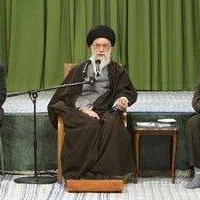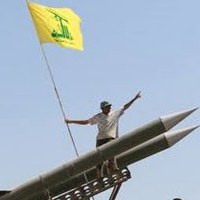![]()
Tue, Dec 21, 2010 | The Rubin Report | By Barry Rubin
The Poisoned Fruits of Appeasement Come Home to Roost
The U.S. weakness in countering Iran and other radical forces in the Middle East is beginning to bear poisoned fruits. Jordan is already moving toward getting on Iran’s good side; Lebanon has been captured by the Iran-Syria camp; Turkey has moved into its orbit, becoming an ally of Iran and Syria, while the Obama Administration merely makes counterproductive speeches emphasizing how important the relationship is with that country despite differences (that is, the Turkish regime sabotaging U.S. interests repeatedly).
Now Qatar–which hedges its bets between cooperating with the United States on basing rights, sponsors the radical anti-American al-Jazira network, and works with Iran on regional issues—has also moved closer to Tehran. Qatar participated in joint war games with Iran and has now invited Iranian Revolutionary Guards troops for a visit including five warships to inspect Qatar’s defenses. Deputy head of the Revolutionary Guards’ navy, Alireza Tangsiri, said, “Such programs will definitely pave the way for mutual cooperation.”
You bet.
Meanwhile, in the Gaza Strip all the influx of Western aid and the reduction of sanctions hasn’t helped matters one bit when it comes to the terrorism of its Hamas rulers. On the contrary, 14 rockets were fired at Israel on December 19 and 20 (one narrowly missing a kindergarten class), by far the highest number since the war caused by massive Hamas attacks a year ago.
But guess what? Aid groups are now campaigning for reducing sanctions even more! And after the restrictions have been narrowed to cover only military-related material, Reuters describes this as a “blockade.”
Could it be that Western support for Hamas, or at least for stabilizing its rule in the Gaza Strip, is making Hamas bolder?
Might it be that Western criticism of Israel for its military campaign two years ago–without seriously condemning Hamas’s aggression and use of civilians as human shields–has convinced Hamas that it can attack Israel regularly but Israel will hesitate to retaliate lest it incur international condemnation again?
Is it possible that Hamas is confident that if Israel does attack it can use this as leverage to gain even more Western concessions and apparent sympathy by cynically sacrificing its own people? [Sarcasm alert] No doubt, when there are no sanctions at all, Hamas will become moderate.
In fact, Israel has already learned the lesson that the more land it withdrew from and the more concessions offered, the more militant, confident, and intransigent the other side became. That’s why nowadays those demanding even more concessions–if there is some real cost or risk involved–are going to be ignored if at all possible.
Can there be any correlation between Western eagerness to engage Syria while ignoring its continued aggression in Iraq and Lebanon with that dictatorship’s growing boldness and arrogance? (Indeed, at this very moment, Lebanese moderates are complaining that France is making a deal with Hizballah to sell out the investigation of Syrian (and possibly Hizballah) involvement in assassinations and terrorism against Lebanese moderates.)
And might it further be credible that by making the Palestinian Authority feel that it can get international recognition by refusing to negotiate with Israel or compromise is sabotaging the peace process that Western governments so passionately advocate?
Here’s UPI’s strange fable about the situation:
“Palestinian Authority leader Mahmoud Abbas…has sought to negotiate a peace agreement with Israel rather than wage war against it to liberate Palestinian land from 43 years of occupation. As such, he has been central to U.S. efforts to move the foundering peace process forward….His popularity, such as it was, has ebbed, particularly among Arafat’s Old Guard, as the prospect of a Palestinian state faded in the face of Israel’s intransigence.”
Yes, we live in a bizarre world in which Israel has offered to negotiate for two solid years and froze construction for ten months at U.S. request while the Palestinian Authority has refused to negotiate and yet it is Israel that is allegedly showing “intransigence.” And in which explanations of the conflict always mention Palestinian demands but never the fact that Israel wants to be secure from 62 years of war waged against it to wipe it off the map.
All of these points are obvious; none of these points seem to shape Western policy or mass media coverage. Probably a year or two from now when the relationship of appeasing or ignoring radical forces is apparent these links will be discovered with astonishment by those who should be coping with them now.
About the author,
Barry Rubin is director of the Global Research in International Affairs (GLORIA) Center and editor of the Middle East Review of International Affairs (MERIA) Journal. His latest books are The Israel-Arab Reader (seventh edition), The Long War for Freedom: The Arab Struggle for Democracy in the Middle East (Wiley), and The Truth About Syria (Palgrave-Macmillan). For the website of the GLORIA Center go here and for his blog, Rubin Reports, go here.



 RSS
RSS











Poisoned Fruits of Obama's Appeasement | #jcot #tcot #Israel #Obama http://j.mp/gLIaYp
RT @CrethiPlethi: Poisoned Fruits of Obama's Appeasement | #jcot #tcot #Israel #Obama http://j.mp/gLIaYp